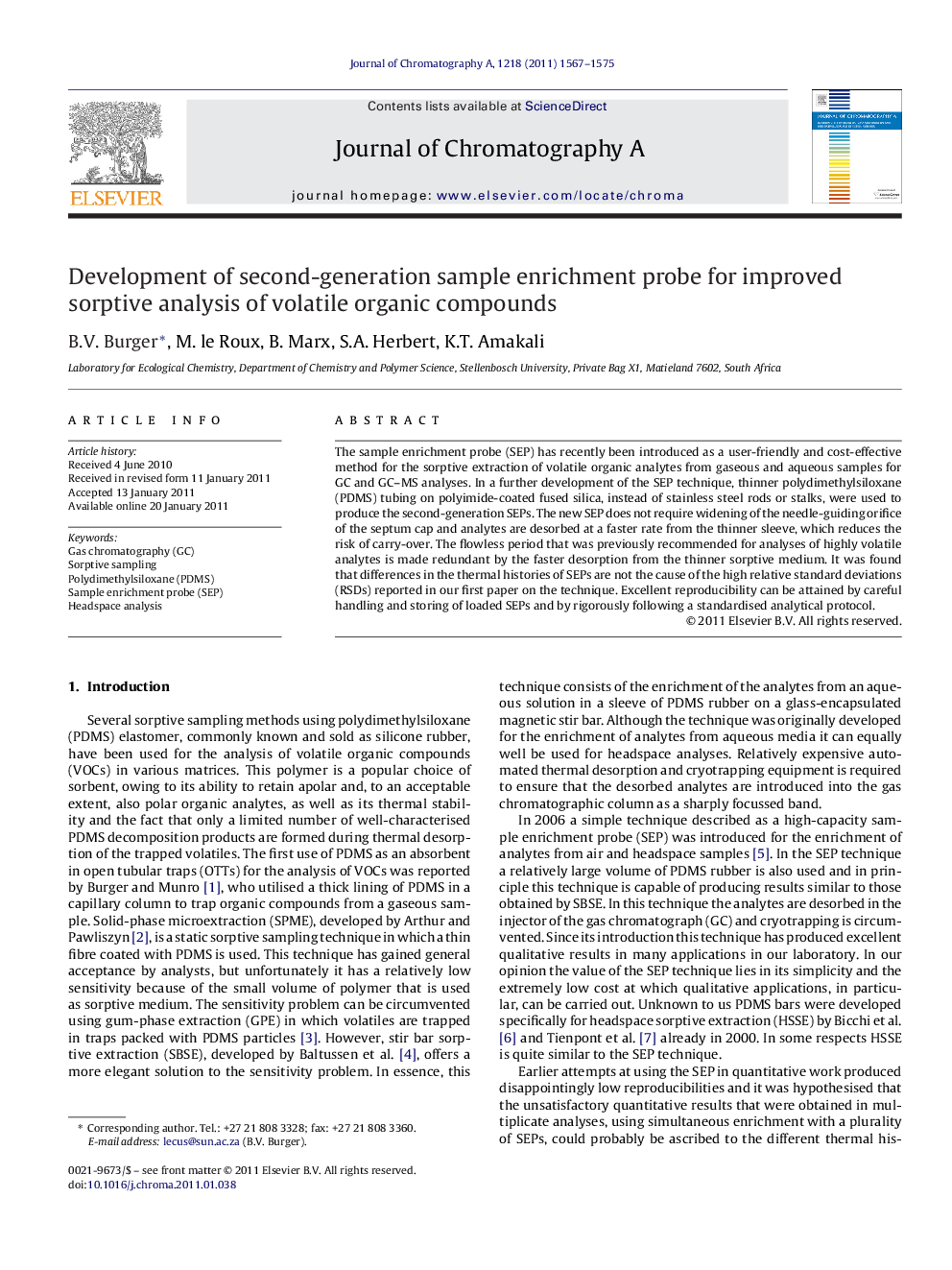| Article ID | Journal | Published Year | Pages | File Type |
|---|---|---|---|---|
| 1207976 | Journal of Chromatography A | 2011 | 9 Pages |
The sample enrichment probe (SEP) has recently been introduced as a user-friendly and cost-effective method for the sorptive extraction of volatile organic analytes from gaseous and aqueous samples for GC and GC–MS analyses. In a further development of the SEP technique, thinner polydimethylsiloxane (PDMS) tubing on polyimide-coated fused silica, instead of stainless steel rods or stalks, were used to produce the second-generation SEPs. The new SEP does not require widening of the needle-guiding orifice of the septum cap and analytes are desorbed at a faster rate from the thinner sleeve, which reduces the risk of carry-over. The flowless period that was previously recommended for analyses of highly volatile analytes is made redundant by the faster desorption from the thinner sorptive medium. It was found that differences in the thermal histories of SEPs are not the cause of the high relative standard deviations (RSDs) reported in our first paper on the technique. Excellent reproducibility can be attained by careful handling and storing of loaded SEPs and by rigorously following a standardised analytical protocol.
